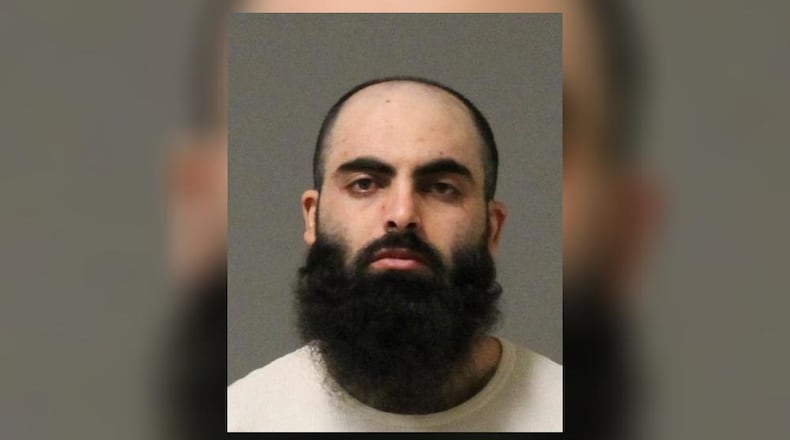Federal public defender Thomas Anderson filed a motion in Dayton’s U.S. District Court asking prosecutors to provide or at least confirm the existence of any recordings of Laith Waleed Alebbini during an already scheduled in-chambers March 15 hearing.
Alebbini, 27, was indicted on one count of attempting to provide material support to a Foreign Terrorist Organization (FTO) after he tried in April 2017 to board a flight to Jordan from the Cincinnati/Northern Kentucky International Airport.
»RELATED: Terrorism suspect asks for release from jail before trial
“The flight was purchased with funds provided by the FBI and given to Laith by a Confidential Informant working for the FBI,” Anderson wrote in his motion. “To date there has been no indication that Laith had any communication, whatsoever, with anyone from ISIS or purporting to be in any way affiliated with ISIS.
“The government’s theory is not that Laith was plotting any type of terrorist attack either in America or abroad, but rather that he intended to ultimately make his way to join ISIS in Syria for the sole purpose of killing (Syrian President) Bashar al-Assad.”
Prosecutors have invoked the Classified Information Procedures Act (CIPA) in the Alebbini case to “protect classified information from disclosure.”
»RELATED: Dayton man ‘perfect ISIS recruit’ to be held before trial
First Assistant U.S. Attorney Vipal Patel filed an “ex parte, in camera, and under seal motion” on March 1 — the same day as Anderson’s filing. A U.S. Attorney’s Office spokeswoman said they are unable to comment about the defense motion but plan to file a response in court next week.
In January, U.S. District Court Judge Walter Rice overruled a defense motion to revoke Alebbini’s detention order. Rice noted in that ruling that he’s concerned that Alebbini doesn’t have meaningful access to the “voluminous discovery,” much of which is on compact discs which require a computer to access them.
The charge Alebbini faces has a maximum penalty of 20 years in prison. In February, Alebbini was moved and booked into the Shelby County Jail.
»RELATED: Laith Alebbini background information
Anderson wrote that, at a minimum, the government should confirm or deny the existence of intercepted communications. Anderson wants to be included in any in-camera or in-chambers sessions involving classified material.
“It is hard to imagine anything more essential to a defense of an attempt crime than the actual recorded words of the defendant intercepted by the government,” the motion said.
“As is true with any attempt charge, the crime has not been completed, and here the government bears the burden to prove beyond a reasonable doubt that Laith specifically intended to place himself under the direction and control of ISIS before he took a substantial step towards committing the alleged crime,” the motion continued.
MORE: Read other stories from Mark Gokavi
About the Author
